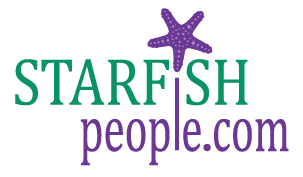*Please note that while we use the terms ‘woman’ and ‘women’ in this guide, we also recognise that transgender, non-binary, and intersex employees may experience menopause and require support and flexibility appropriate to their needs.
Menopause is a natural part of ageing and is experienced by most women*, typically between 45-55. Symptoms can be both physical and psychological, varying significantly from person to person, and can be extremely challenging to manage.
Add work into the mix, and things can become even tougher…
Navigating menopause symptoms at work can be tricky, impacting a woman’s comfort and performance. Additionally, some women still feel embarrassed discussing their experiences with colleagues or line managers.
Showing support and making even small adaptations to someone’s working pattern or environment can make a world of difference. Despite this, some employers are still not getting it right.
A recent Employment Tribunal case (Mrs M Lynskey v Direct Line Insurance) found that menopause symptoms can be considered a disability. Refusing to make reasonable adjustments can have serious legal consequences.
In this guide, we’ll walk you through 10 essential steps to ensure your business creates an inclusive and supportive culture, your line managers are adequately trained, and that you’re thinking both legally and commercially.
Now is the time to take menopause at work seriously…
Step 1 – Create a Menopause Policy
Having a menopause policy with clearly defined internal guidelines is an excellent starting point. Include an overview of menopause, reasonable adjustments, support measures, flexible working options, practical guidance for colleagues and managers, and references to support resources.
This not only meets your legal obligations but also demonstrates your commitment to fostering an inclusive culture where menopause is openly discussed and shows you care about your employees.
Step 2 – Understand Menopause Symptoms
Studies show that up to a third of women will experience severe menopausal symptoms that can impact their overall quality of life. Symptoms include hot flushes, anxiety, mood swings, headaches, reduced concentration, ‘brain fog,’ and feeling tearful.
Understanding the symptoms and their impact on a woman’s emotional, physical, and mental health can be a hugely positive factor in showing empathy and support.
Step 3 – Be Aware of the Law
Menopause isn’t explicitly a protected characteristic under the law. However, recent ET claims and guidance from the Equality and Human Rights Commission (EHRC) in February 2024 clarify that menopause symptoms could qualify as a disability if they have a long-term and substantial impact on a woman’s ability to carry out her normal day-to-day activities.
Ensure your line managers are up to speed with the rights menopausal employees have under the Equality Act 2010. This protects them against discrimination—whether direct or indirect—on the grounds of protected characteristics such as age, gender, sex, or disability.
Step 4 – Do All You Can to Prevent Discrimination
As a business leader, it’s crucial to take proactive steps to prevent discrimination. Your senior leaders, line managers, and colleagues must also be informed.
Examples include:
- Discouraging unwanted comments, jokes, or ridicule about menopause or perimenopause symptoms. These are completely unacceptable and could amount to harassment or sexual harassment.
- Advising managers to record menopause-related absences separately from other sickness absences. Disciplinary action due to menopause-related absence could constitute unlawful discrimination unless there’s an objective justification.
Step 5 – Manage Performance Proactively
Menopausal symptoms can impact a woman’s ability to concentrate or perform her role. Approach conversations empathetically and positively to build trust. Understand and reduce any obstacles to performance and consider health-related issues.
Explore opportunities for adjustments or extra support. Even small changes, such as extra breaks or coaching, can make a significant difference.
Step 6 – Make Reasonable Adjustments
As an employer, you have a legal duty to assess and address workplace risks to ensure the health and safety of your employees. This includes identifying and implementing reasonable adjustments for women experiencing menopausal symptoms.
Regular, confidential chats with employees can help explore what works best for them. Involve an expert or occupational health if needed.
Examples of adaptations include:
- Temperature control measures like a desk fan.
- Access to a cool, quiet room with a ‘do not disturb’ sign.
- Changes in working hours to avoid rush hour or accommodate disrupted sleep.
Step 7 – Create an Open and Inclusive Culture
Menopause should not be a taboo subject. In 2024, there’s still a lack of understanding and support at work for employees going through menopause, making things awkward and uncomfortable.
Creating a workplace culture that openly acknowledges and supports employees during menopause should be a key part of your strategy. This reduces stigma, encourages early disclosure of symptoms, and facilitates access to support.
Step 8 – Educate and Inform
Ensure your HR teams and line managers undergo professional training. This equips them with the appropriate awareness, knowledge, and understanding of menopause, empowering them to implement required support frameworks and navigate employees to available support resources.
Step 9 – Build an Internal Support Network
For some employees, opening up about menopause at work can feel embarrassing. Building a strong internal support network, made up of trained Mental Health First Aiders, HR professionals, and Menopause Champions, can provide great support and spearhead other internal support groups.
Step 10 – Think Commercially
According to Henpicked, having menopause support at work benefits your employees and your bottom line. Women over 50 are the fastest-growing workplace demographic, and supporting them helps attract, recruit, and retain the best talent.
Need Help?
Menopause is a natural part of ageing, but it’s not always easy—especially at work. By focusing on the legal risks, preventing discrimination, and fostering an inclusive culture, you’ll support your employees through this challenging phase.
That’s everything you need to know about menopause in the workplace! If you need further help or advice, get in touch.
Stay connected with us on our website www.starfishpeople.com for more updates, insights, and exciting developments in the world of HR!
Call us directly in our Chichester office on 01243 – 967961 or email [email protected]
You can also book a FREE 30-minute consultation with Helen our HR Guru in the Starfish People Virtual Meeting Room by using the link or scanning the QR code below.


Helen Price-Evans
HR Guru Starfish People Ltd
#menopauseawareness #inclusiveworkplace #supportyourteam #workplacewellbeing #employeesupport #equalityatwork #menopausesupport #hrguidance #businessleadership


